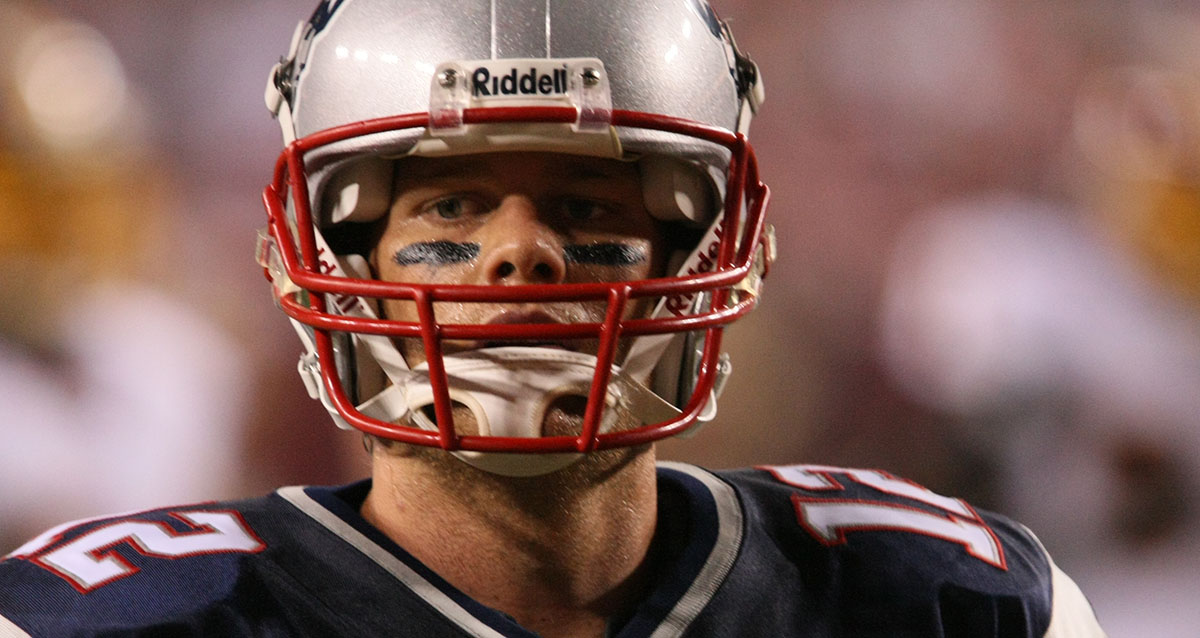Tom Brady’s Stance on Domestic Violence Should Be More Than ‘No Comment’

Tom Brady by Keith Allison via Flickr/Creative Commons
Only a scant few NFL players have publicly admonished Cowboys defensive end Greg Hardy since Deadspin released the photos of his battered ex-girlfriend Friday. When given the opportunity to join those voices in his weekly interview with WEEI’s Dennis & Callahan Monday, Tom Brady passed.
Host Gerry Callahan asked Brady if he agreed with Seahawks defensive lineman Michael Bennett, who said he’s not sure he would want Hardy as a teammate, or Eagles offensive lineman Jason Kelce, who said, “It’s a joke” that Hardy is back on the field. Brady brushed off the question in eight seconds.
Callahan: “Michael Bennett, Seattle Seahawks says, ‘I wouldn’t want him, we wouldn’t want him in our locker room.’ Jason Kelce from the Eagles says ‘it’s a joke’ that he’s able to play. Would you allow a guy like that [in your locker room]?”
Brady: “I mean, I don’t know him at all. Obviously I … I’m going to stay from that one. There’s nothing good from that.”
When one of Callahan’s co-hosts, Kirk Minihane, tried to follow-up, Brady sidestepped him as well.
Minihane: “Do you think that you as Tom Brady—one of the voices in the league—might have more of a responsibility than other players to speak up if somebody like that, there’s a chance that that guy comes to your locker room?”
Brady: “I’m just going to stay out of that one, guys. I have no, I have no comment.”
This isn’t the first time Brady has deflected questions about domestic violence in the NFL. Last September, when Dennis & Callahan asked him about the string of high-profile domestic abuse incidents involving Ray Rice and Adrian Peterson, he declined to comment as well.
“I try to stay in my lane. All of those things, none of it’s really my business or my control,” Brady said, via Sports Illustrated. “I’ve just been focusing on the games and what I can do better. The things that are taking place on other teams or league-wide decisions, those are a different pay grade than me.”
Brady may be right: He’s paid to throw a football, not pontificate on provocative issues. But viewing an athlete’s responsibilities in those narrow parameters ignores the fact that sports have long served as a catalyst for social change. Just this week, more than 30 players on the University of Missouri’s football team said they wouldn’t participate in any club activities until Missouri System president Tim Wolfe resigned amid allegations he’s inadequately handled racial episodes on campus. Though students have been calling for Wolfe to step down since mid-September, he finally relinquished his position Monday. The football team’s boycott appeared to be the last straw.
That’s not to say the Cowboys would cut Hardy if Brady or more NFL stars spoke out against him. But perhaps it would dissuade other teams from taking on players who have been arrested for—and in Hardy’s case, convicted of—domestic assault.
If the NFL is going to rid itself of its domestic violence problem, players need to make it clear woman-beaters don’t belong in the league. Brady had a chance to do that Monday, but instead he offered no comment.

